- Home
- Perry Rhodan
The Fleet of the Springers
The Fleet of the Springers Read online
Perry Rhodan
The Third Power #22
The Fleet
of the Springers
THE FLEET OF THE SPRINGERS
by Kurt Mahr
Copyright © Ace Books 1973,
Ace Publishing Corporation
All Rights Reserved
—————————————————
The Fleet of the Springers
—————————————————
1/ Prisoners Of The Springers
UNKNOWN TO ALL but the Springers was this secret place. This place where prisoners of the K-7 were confined.
The K-7, auxiliary ship of the Terrestrial spacefleet, measured 200 feet in diameter and was presently bound to the Orla XI by a highly effective magneto-mechanical bond. The bond neutralized itself inside the Orla, which was one of the gigantic spacers of the merchant fleet of the unique race known as the Springers.
A captive of the alien ship, the K-7 and its crew had gone through hypertransition with the Springers and emerged, after the hytrans process, at this unidentified place in space. Beneath the K-7, parasitic prisoner of the Springer ship, lay a strange cloud-covered world around which parent ship and kidnapped ship had been circling for endless hours.
Three humans stood together in the command center of the K-7: Humphrey Hifield, Klaus Eberhardt and Mildred Orsons. Hifield and Eberhardt still wore the regular service uniform of Space Academy cadets. Mildred was attired in one of the comfortable sheer spacesuits of Arkonide manufacture, with a helmet that hung on the back like a hood when not in use.
"It's taking a long time!" Eberhardt growled.
Hifield shrugged his shoulders.
"I hope they don't hurt him," Mildred sighed.
The remark seemed to irritate Hifield, who flared: "Why should they do anything to him? He'll be back in five or ten minutes and laugh at you for being so scared. I wish somebody would make that big a fuss about me!"
Mildred refrained from reacting. Eberhardt looked sideways at Hifield and grinned: "You're always very careful not to get into situations that would cause us to worry about you, aren't you?"
Hifield was not the man to let such an insinuation pass unnoticed. But before he could retort, Mildred cried out happily: "Here he comes! Over there!"
A hole suddenly gaped in the smooth wall of the strange ship. A human figure emerged, pushed off and floated across the chasm. On the observation screen, the figure was lost from sight when it disappeared behind the curvature of the K-7.
Mildred was already on her way. "Come on! Let's go meet him!" she shouted.
Eberhardt ran after her. Hifield angrily shook his head, then reluctantly followed. Posted at the exit of the command center were two heavily armed Springer guards but these the trio stormed through and ran down the wide corridor to the main elevator. The two tall long-haired Springers didn't move a facial muscle. They had observed the three prisoners while they were in the command center and were certain that they hadn't done anything undesirable.
Mildred, Eberhardt and Hifield reached the airlock of the auxiliary ship at the same time as the hatch opened. The man they had seen float across from the Orla XI stepped in, pulled his helmet back over his head and let his shoulders drop in a gesture of resignation.
"What's the matter, Tiff?" Mildred asked anxiously.
Tiff—Julian Tifflor, Cadet of the Space Academy in Terrania on a clandestine mission so secret that he himself had not been informed of its true purpose— waved his hand. "Nothing," he answered wearily. "They've grilled me. And, by Jove, they've got a way of interrogating you that makes you forget how to smile!"
"And how much did you spill?" Hifield asked a little more acrimoniously than he really intended.
"Not a thing!" Tiff shouted, enraged. "I don't know anything so I couldn't blab anything!"
"Says you!" Hifield shot back unmoved.
Mildred gave him an exasperated look. "Can't you stop this quarreling for five minutes?" she upbraided him. Then she turned toward Tiff to ask him something but Tiff said quickly:
"Let's all go up! I've got to talk to you!"
He led the way. The two cadets and the girl followed him. They rode up in the antigrav-elevator to the section of the auxiliary ship where the cabins and the small mess hall were located. In the mess hall they found six of the 10 cadets on board the K-7, Felicita Kergonen, the botany student and Major Deringhouse who had hobbled down on crutches from his cabin to enjoy some company.
They knew that Julian Tifflor had been called on board the Orla for questioning. When he entered their conversation fell silent. Tifflor first raised his hand from his hip in a quick silent gesture. Then he said: "Good morning! How are you getting along around here?"
The reply came hesitantly and in exactly the manner Tiff had expected: dispassionately and unsuspiciously.
They had understood his gesture on which they had agreed a few hours earlier. Raising the hand from the hip meant: I've got to say something the Springers aren't allowed to hear. Watch the intercom!
The Springers were anything but fools. They knew exactly what kind of prisoners they had captured—prisoners who would only give up the thought of escape when their throat was cut. The K-7 was equipped with a very efficient intercom system and the Springers made thorough use of it to survey their captives.
Tiff started some innocuous chatter. A few of the cadets surrounded him and asked him about his experiences on board the Orla. The others kept talking to Deringhouse who, with his wounded leg, had pushed together two chairs in order to be comfortable.
The group around Tiff stood shoulder to shoulder. The circle was so tight that Tiff was able to hastily write something on a piece of paper without being detected by the intercom, all the while giving insignificant answers. He passed the slip to Hifield who stood next to him and was sure that the news would get around within a few minutes. The conversation continued while the ship circulated. The message read:
"The Orla is inferior to the K-7 in equipment and energy output. We can get away if we manage to start our engines. The two girls will have to distract the guards from the command center. I'll switch on the controls and set a time delay of about one hour for take-off. Any suggestions when we can start?"
• • •
The Stardust hovered near the outer edge of the Terrestrial solar system between the orbits of Pluto and Neptune. The gigantic battleship—half a mile in diameter—was flanked by the two heavy cruisers Terra and Solar System. Perry Rhodan kept in constant touch with the two commanders via intercom.
Structure-sensors had detected the transition of the strange spaceship and pinpointed the location of departure. Rhodan had submitted the data of the sensor to the positronic calculator and demanded a rapid evaluation.
Rhodan knew that even the tremendous positronic computer of the Stardust would require six to seven hours for the evaluation of the complicated sensor-diagram if the result was to be obtained with an error of less than one percent.
But Rhodan didn't have time to wait six or seven hours.
He, the Stardust and Terra were facing an enemy that had been able to keep hidden in spite of all the efforts on Earth. This was an indication that their technical achievements were far from underdeveloped.
Rhodan had worked out a plan according to which Julian Tifflor was supposed to lead him on the track of the adversary. Tifflor had measured up to his expectations. However nobody had foreseen that the enemy would capture the K-7 and take it from the orbit of Pluto into hyperspace so that Tifflor's cell-transmitter had been transferred from within a second outside the range of reception by the telepaths.
Rhodan was prepared to risk an error up to 10% in the evalu
ation of the diagram but he was not ready to tolerate a delay of more than an hour.
"We must find the K-7 again!"
Hardly anybody had heard another word from him since the auxiliary ship had disappeared. Reginald Bell brought the plastic strip printed with the result of the calculations of the positronic computer. Rhodan grabbed the strip out of his hand and studied it. That took a minute. Bell glanced at him from the side. "Well... ?" He wanted to ask more but at that moment Rhodan lifted his bead and shouted:
"Get ready for transition! Terra and Solar System will come along with us!"
• • •
"In two hours," was the consensus of the inquiry. "Shortly after change of guards."
Tiff agreed. He had made the same proposal. He left the mess hall together with Eberhardt and Mildred. Hifield remained behind.
The intercom receiver-transmitters were installed in the walls of the corridor at regular intervals. The distance between the sets was about 25 feet. As Mildred and the two cadets kept their voices very low there was a stretch of about six to ten feet between two sets where the sound could not be picked up by the intercom.
Their conversation proceeded something like this:
"Orlgans was convulsed with laughter." Tiff described the situation during the interrogation he had just endured as they slowly walked past one of the sets. "But you know the Springers. They laugh loudly and amuse themselves royally, thinking all the time about the best way to obliterate you."
"What did they want to know?" Eberhardt asked.
Tiff glanced at the wall. The intercom they had just passed was about 10 feet behind them and the next one 15 feet ahead.
"You'll have to engage the guards in a conversation, Milly," Tiff said quickly and softly. "Pretend you want to show them something and lure them away from the command center for at least three minutes. Three minutes will be enough for me at the worst but more would be a lot better."
The intercom came closer.
"...nothing, of course," Tiff changed abruptly. I don't have the slightest idea what secrets he thinks that I know. He doesn't give me any clues either. He laughed loudly in my face and said next time he'd apply different methods that would be highly unpleasant for me while he obtained his information."
Mildred's face looked frightened. "Do you believe he'll really do that?"
Tiff nodded. The intercom was behind them again. "He certainly will! You must do your job very cleverly, Milly. Even if I set a time delay, the guards could discover our operation if they should become suspicious and investigate the command center closely. You'll have to explain it all precisely to Felicita so she won't do anything silly. And tell her not to be afraid! They're nice guys as long as they're your friends. But look out when you cross them up!"
• • •
"There's no matter to speak of within a radius of 20 light-years," the rangefinder reported.
Perry Rhodan sat in front of the Stardust's pilot console. The observation screen showed the blackness of empty space, overlaid by a contourless veil of cold points of light.
Two blurred, faintly shimmering spots appeared on the screen—the Terra and the Solar System.
"And what is beyond the 20 light-year limit?" Rhodan asked into the microphone.
The answer came promptly: "Beta-Albireo is 21.85 light-years away from our present location, a double star in the constellation Cygnus."
"What else?"
"Two more suns at a distance of 53.56 and 62.72 light-years, sir."
"Thank you!"
Reginald Bell was leaning against the side of the pilot console. Rhodan looked at him and said: "We've jumped 350 light-years. Beta-Albireo is located about 320 light-years from the Sun. The positronic indicated an error of 9.2% for its calculations."
Rhodan interrupted himself and connected with the rangefinder again. "Let me have the distance of the two unknown stars from the Sun," he requested.
The whirring of the calculating machine was audible in the loudspeaker. Then came the answer: "The closer of the two is almost exactly on the extension of the line Terra-Stardust. Distance from Sol approximately 400 light-years. The other one is located at positive Phi from the line. Distance from Sol about 383 light-years."
Rhodan clicked off and looked once more at Bell. "Did you hear that?"
Bell was doing some figuring in his head. "Yes, I heard it," he replied thoughtfully. "350 plus or minus 9.2% means that the goal is within a range of 318 to 382 light-years distance from Sol; 320 could be right, perhaps even 383 under certain circumstances, but 400 must be eliminated."
Rhodan agreed. "Fine. Now we've got two targets to choose from. Which shall it be?"
Bell twisted his face in a bellicose grin. "The more likely of the two: Beta-Albireo!"
• • •
The Springers were descendants of an Arkonide race. In their technical development they were at least equal to the Arkonides, the rulers of the Galactic Imperium, if not superior. The Springer fleet, whether battleships or merchant ships, was equipped with structure-sensors which could register the disturbance of the four-dimensional space-time continuum caused by the transition of a spaceship at a great distance.
The Orla XI located the severe disturbance produced by the transition of the three Terrestrial warships without difficulty. And Orlgans, owner and captain of the Orla, began to realize that he had become involved in an affair that probably was too much for him to handle. Orlgans consulted with the man who would have been called First Officer on board Terrestrial ships. The Springers were traders and there were no military titles on their mercantile vessels.
The man's name was Ornafer. A Terranian would have had trouble telling the two men apart unless he knew them for some time. They were both the same height—about 6'6"—and of the same solid build. The color of their untrimmed hair was indistinguishable and they wore the close-cropped beards which was the current fashion among the Springers.
"Somebody is on our heels!" Orlgans said gravely.
Ornafer laughed defiantly. "So what! We'll teach them a lesson!"
Orlgans shook his head. "They might teach us a lesson instead," he said.
Ornafer was still laughing. "They wouldn't dare touch us. Us, the Springers!"
Orlgans was of a different opinion. "They know the World of Eternal Life. We don't know what technical means are at their disposal."
Ornafer became less adamant. "We can always call in a few warships to help us if you're worried about them."
Orlgans raised both hands in a sign of affirmation. "The latest finding came from a distance of 20 light-years. If they move in any closer, I'm going to request the warships!"
• • •
Mildred had informed Felicita about their joint task in the same manner as she had received her instructions from Tiff—between two of the intercom sets in the main corridor. Tiff had seen evidence that the machinery of the Springer ship was inferior to the installations of the K-7. He was convinced that the escape should be attempted under any circumstances—either by ruse or with force.
If he sneaked into the command center, Eberhardt, Hifield and a few other cadets would lie in ambush and watch to see if the guards returned too early. In that case they would have to be disabled. Tiff was reasonably certain he could get the auxiliary ship, whose engines had been stopped for hours, ready to start in 10 minutes. They would have to defend the K-7 for 10 minutes against the Springers if the girls should fail in their endeavor.
There was still one matter that remained unclear to Tiff: Major Deringhouse had surrendered the K-7 to the enemy when it was attacked by the Springers in the path of Pluto. He had offered rather ineffectual resistance. The weapons of the K-7 outclassed those of the Springers' merchant ships. Why didn't he put up more of a fight? He could easily have won the battle.
Tiff would have liked to ask Deringhouse this question personally. He conceded that Deringhouse must have had reasons of his own and he was afraid to bare a secret if he asked the Major within earshot
of the intercom.
Mildred and Felicita waited in their cabins till the appointed time had come. They acted as if they met accidentally in the hallway, chatted for awhile loud enough so that they could be overheard on the intercom about what to do next and decided to have a little talk with the two guards in front of the command center. The command center was two floors down and they took the elevator.
Tiff saw them pass by the open door of the mess-hall and gave Eberhardt a sign. Eberhardt caught it at once and passed it on. Tiff left the mess-hall. Eberhardt, Hifield and the other three cadets followed him two minutes later.
Tiff didn't go directly to the command center. First he went down to the bottom of the spherical ship, making it appear as if he were looking for something or other. When he assumed that the girls had finished the first part of their job, he floated up again in the antigrav-elevator and reached the main corridor about 15 feet from the hatch of the command center and close below the receiver of an intercom set. However he was sure that this particular set was not used for surveillance as the two guards were responsible for watching what was going on there.
The guards were gone. He could bear some soft giggling coming from the recess of a side-corridor. The girls were doing their work.
Tiff whistled the signal. The answer came from farther behind in the main corridor where Eberhardt and his men were posted.
Tiff hesitated no longer. With seven or eight quick steps he stood before the command center batch and let it slide open. Impatiently he waited till the crack was big enough for him to slip through. The light flared up as he entered the large round room but Tiff turned it off at once, pushing the override button. Simultaneously he closed the hatch-door switch. The heavy plate of Arkon steel returned with a suction noise into its fitting.

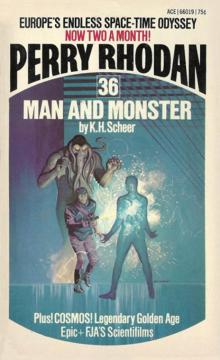 Man and Monster
Man and Monster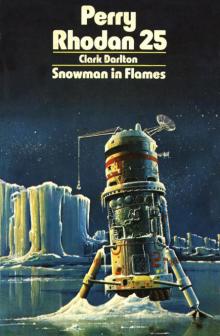 Snowman in Flames
Snowman in Flames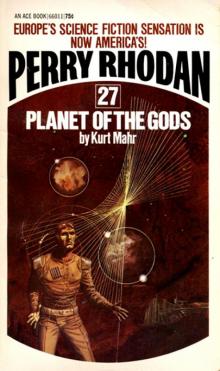 Planet of the Gods
Planet of the Gods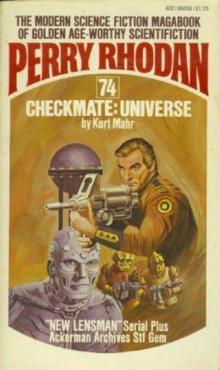 Checkmate Universe
Checkmate Universe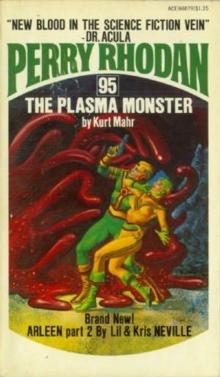 The Plasma Monster
The Plasma Monster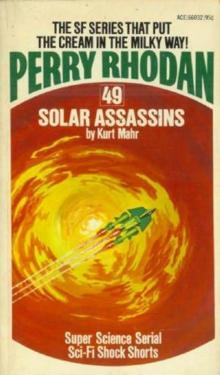 Solar Assassins
Solar Assassins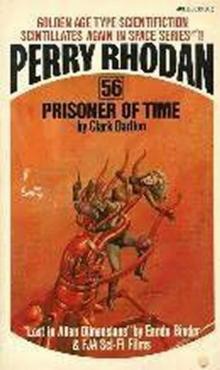 Prisoner of Time
Prisoner of Time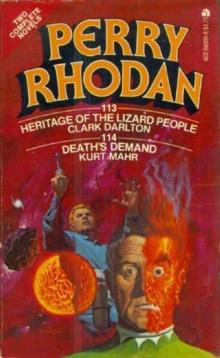 Death's Demand
Death's Demand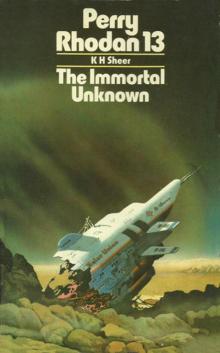 The Immortal Unknown
The Immortal Unknown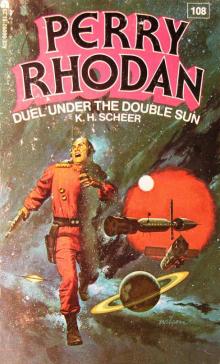 Duel Under the Double Sun
Duel Under the Double Sun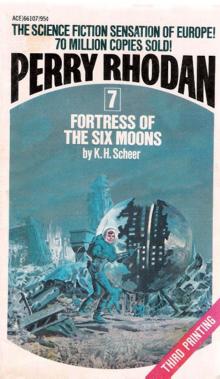 Fortress of the Six Moons
Fortress of the Six Moons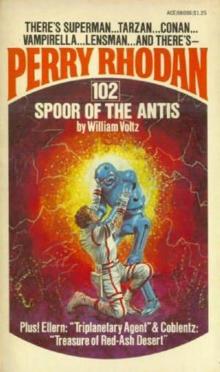 Spoor of the Antis
Spoor of the Antis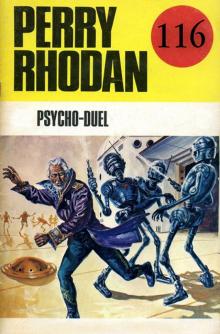 The Psycho-Duel
The Psycho-Duel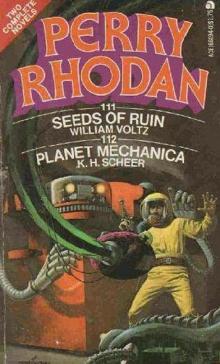 Planet Mechanica
Planet Mechanica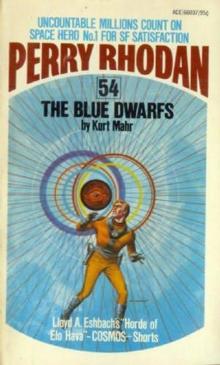 The Blue Dwarfs
The Blue Dwarfs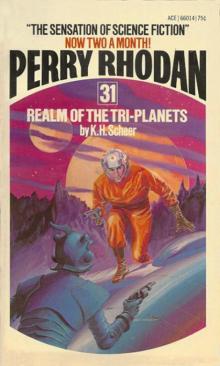 Realm of the Tri-Planets
Realm of the Tri-Planets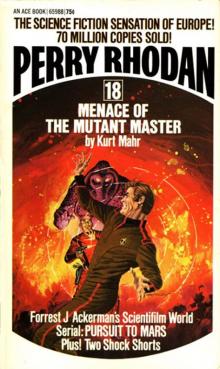 Menace of the Mutant Master
Menace of the Mutant Master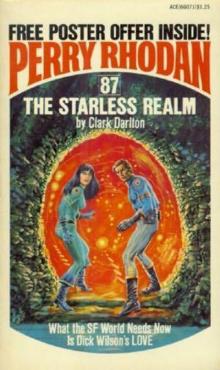 The Starless Realm
The Starless Realm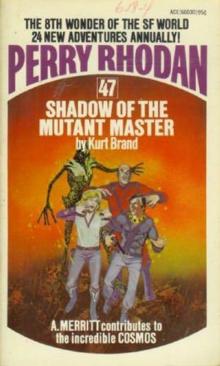 Shadow of the Mutant Master
Shadow of the Mutant Master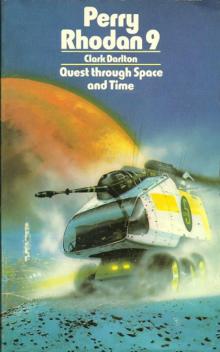 Quest Through Space And Time
Quest Through Space And Time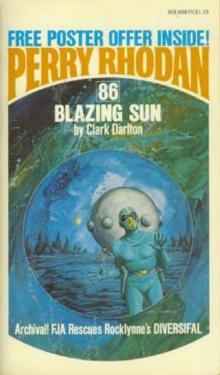 Blazing Sun
Blazing Sun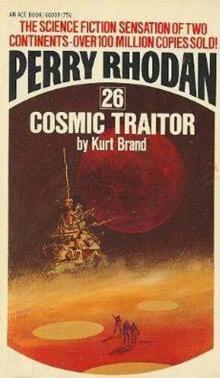 Cosmic Traitor
Cosmic Traitor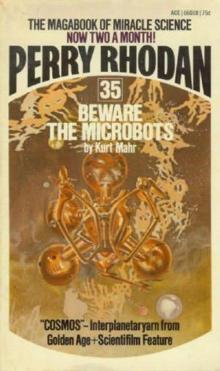 Beware the Microbots
Beware the Microbots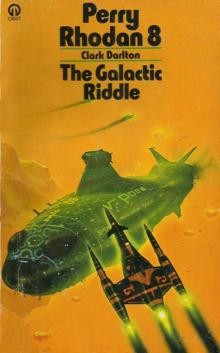 The Galactic Riddle
The Galactic Riddle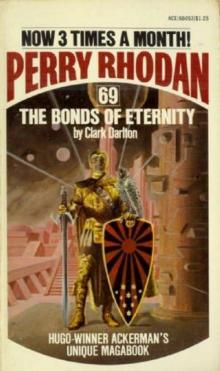 The Bonds of Eternity
The Bonds of Eternity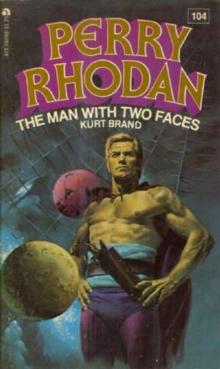 The Man With Two Faces
The Man With Two Faces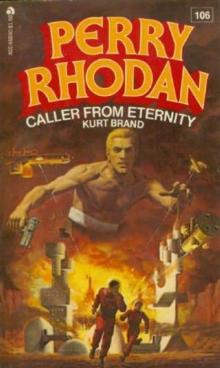 Caller from Eternity
Caller from Eternity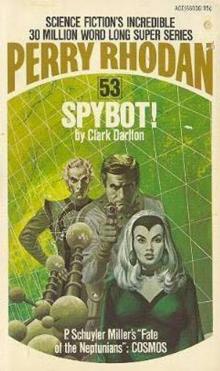 Spybot!
Spybot!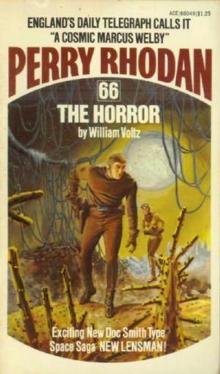 The Horror
The Horror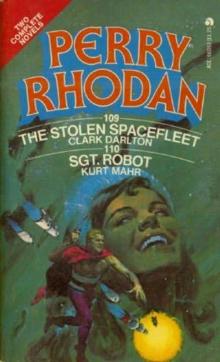 The Stolen Spacefleet
The Stolen Spacefleet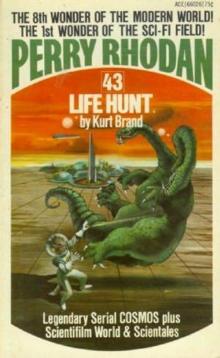 Life Hunt
Life Hunt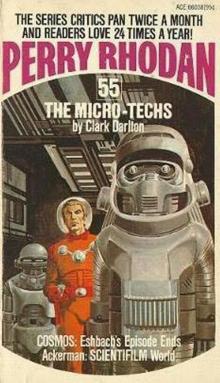 The Micro-Techs
The Micro-Techs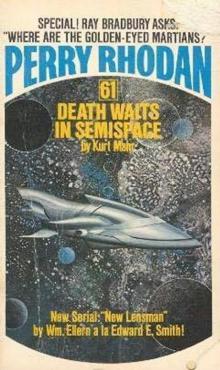 Death Waits in Semispace
Death Waits in Semispace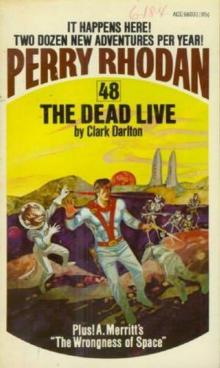 The Dead Live
The Dead Live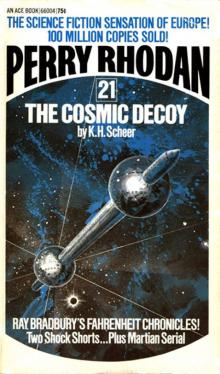 The Cosmic Decoy
The Cosmic Decoy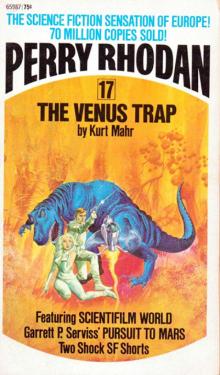 The Venus Trap
The Venus Trap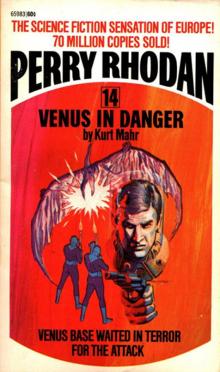 Venus in Danger
Venus in Danger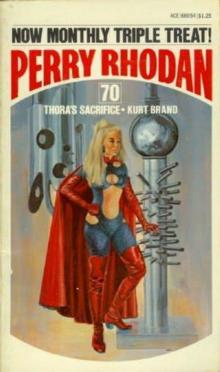 Thora's Sacrifice
Thora's Sacrifice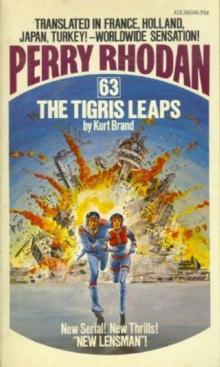 The Tigris Leaps
The Tigris Leaps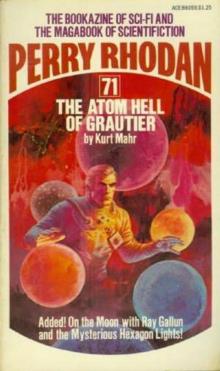 The Atom Hell of Grautier
The Atom Hell of Grautier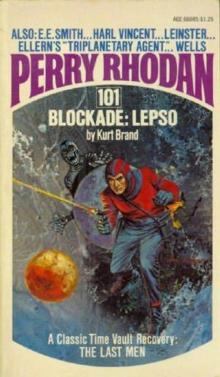 Blockade: Lepso
Blockade: Lepso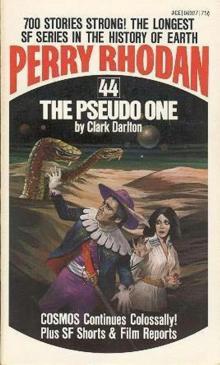 The Pseudo One
The Pseudo One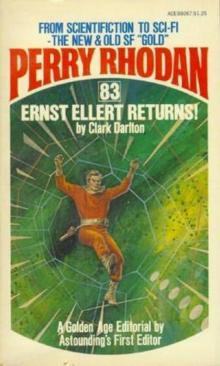 Ernst Ellert Returns
Ernst Ellert Returns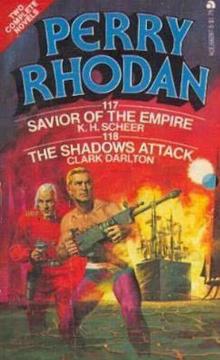 Savior Of The Empire
Savior Of The Empire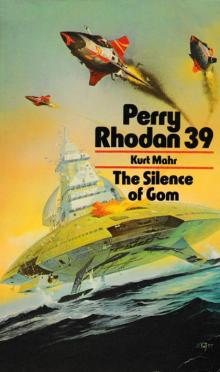 The Silence of Gom
The Silence of Gom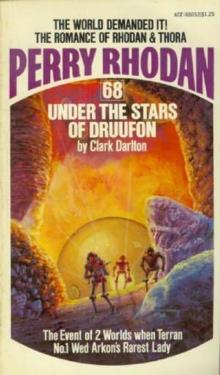 Under the Stars of Druufon
Under the Stars of Druufon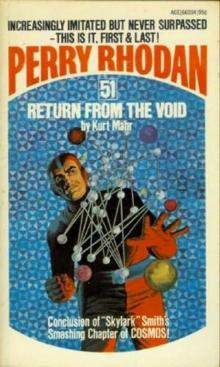 Return from The Void
Return from The Void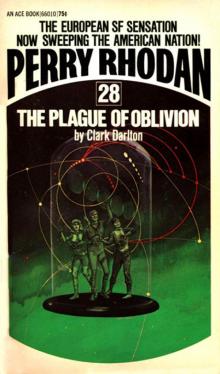 The Plague of Oblivion
The Plague of Oblivion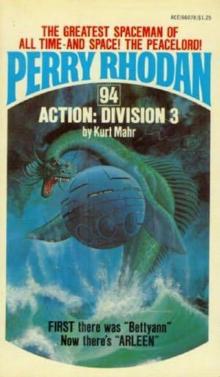 Action Division Three
Action Division Three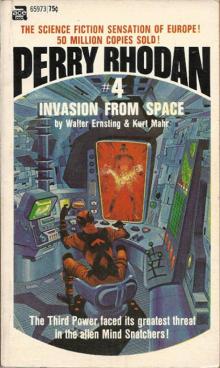 Invasion From Space
Invasion From Space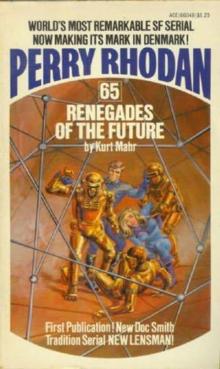 Renegades of the Future
Renegades of the Future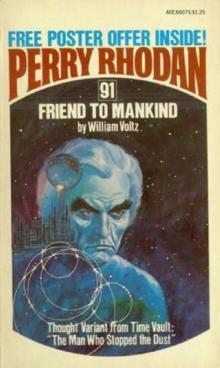 Friend to Mankind
Friend to Mankind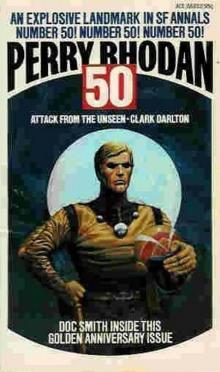 Attack from the Unseen
Attack from the Unseen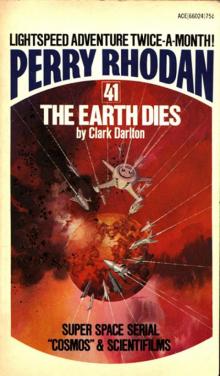 The Earth Dies
The Earth Dies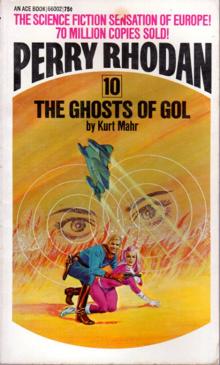 The Ghosts of Gol
The Ghosts of Gol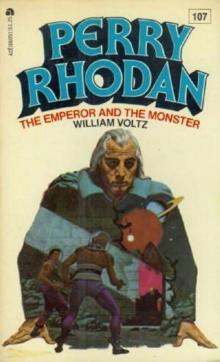 The Emperor and the Monster
The Emperor and the Monster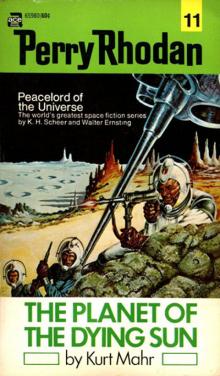 The Planet of the Dying Sun
The Planet of the Dying Sun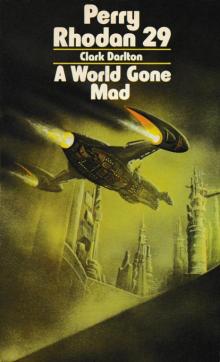 A World Gone Mad
A World Gone Mad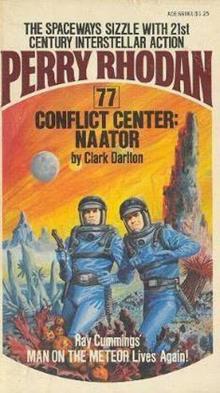 Conflict Center Naator
Conflict Center Naator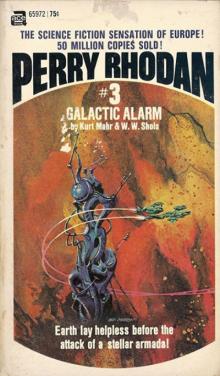 Galactic Alarm
Galactic Alarm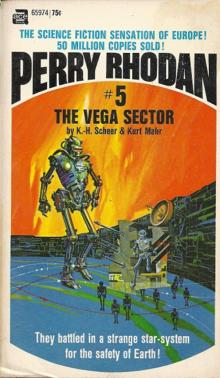 The Vega Sector
The Vega Sector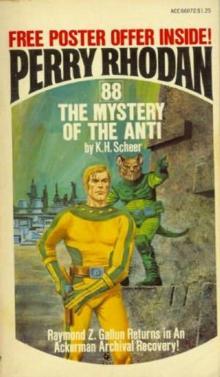 Mystery of the Anti
Mystery of the Anti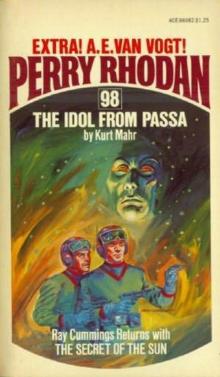 The Idol from Passa
The Idol from Passa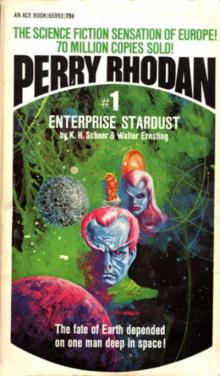 Enterprise Stardust
Enterprise Stardust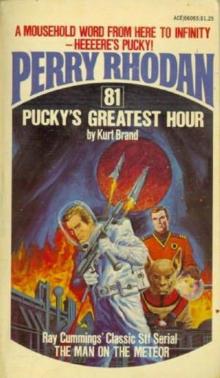 Pucky's Grestest Hour
Pucky's Grestest Hour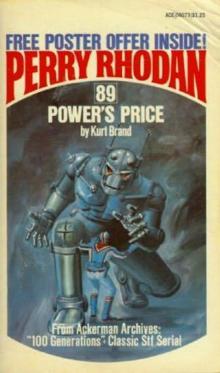 Power's Price
Power's Price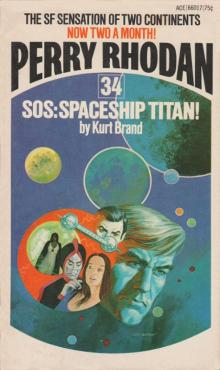 SOS Spaceship Titan
SOS Spaceship Titan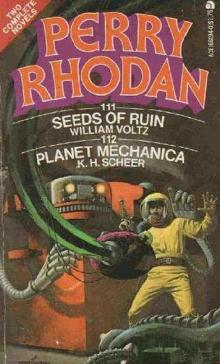 Seeds of Ruin
Seeds of Ruin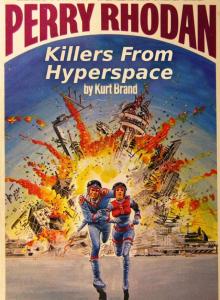 Killers From Hyperspace
Killers From Hyperspace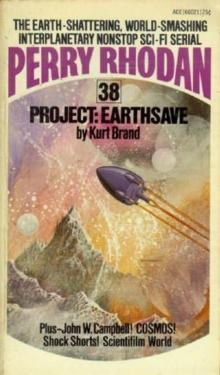 Project Earthsave
Project Earthsave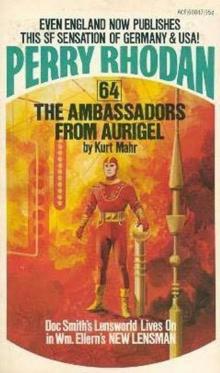 The Ambassadors from Aurigel
The Ambassadors from Aurigel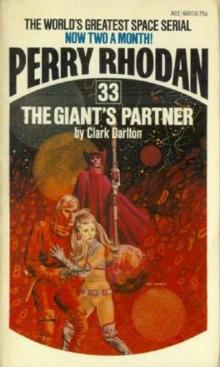 The Giant's Partner
The Giant's Partner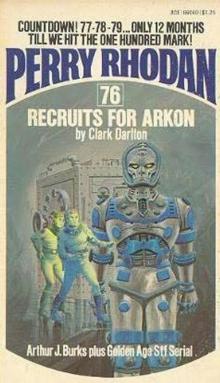 Recruits for Arkon
Recruits for Arkon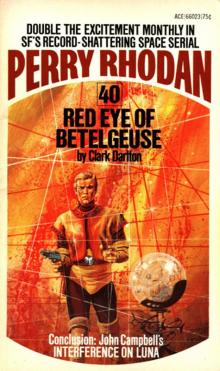 Red Eye of Betelguese
Red Eye of Betelguese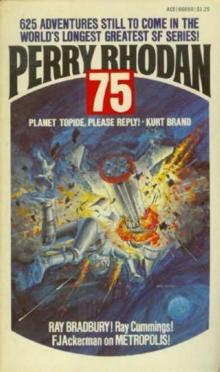 Planet Topide Please Reply
Planet Topide Please Reply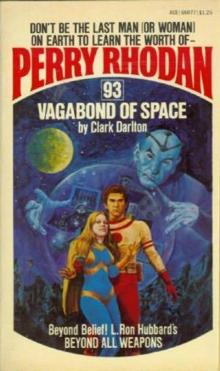 Vagabond of Space
Vagabond of Space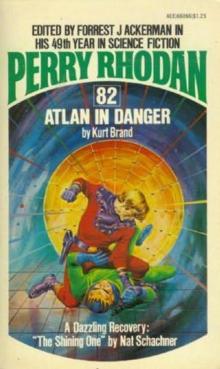 Atlan in Danger
Atlan in Danger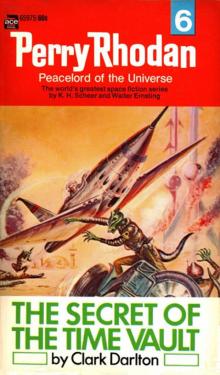 The Secret of the Time Vault
The Secret of the Time Vault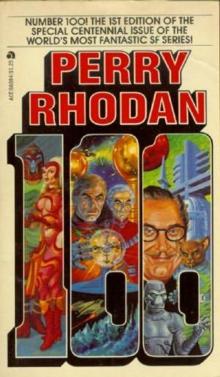 Desert of Death's Domain
Desert of Death's Domain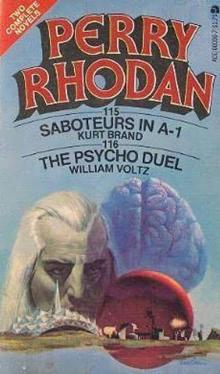 Saboteurs in A-1
Saboteurs in A-1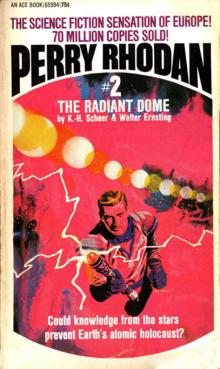 The Radiant Dome
The Radiant Dome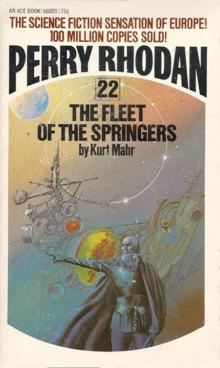 The Fleet of the Springers
The Fleet of the Springers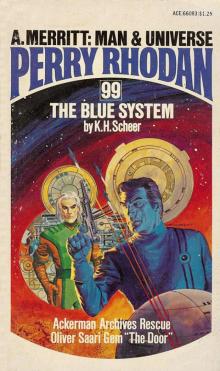 The Blue System
The Blue System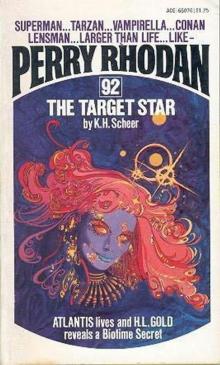 The Target Star
The Target Star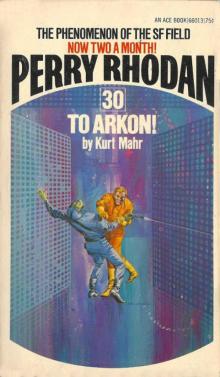 To Arkon!
To Arkon!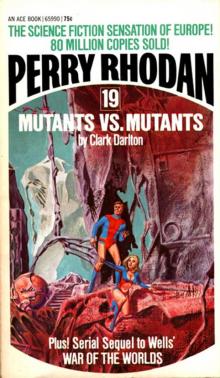 Mutants Vs Mutants
Mutants Vs Mutants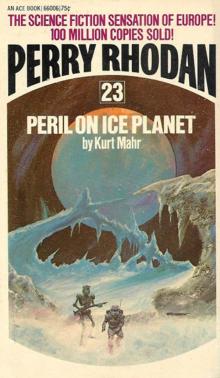 Peril on Ice Planet
Peril on Ice Planet Horn: Green
Horn: Green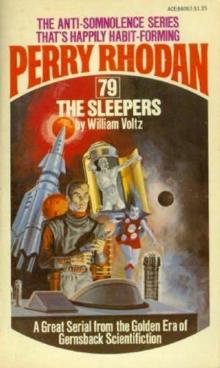 The Sleepers
The Sleepers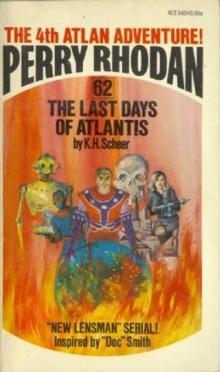 The Last Days of Atlantis
The Last Days of Atlantis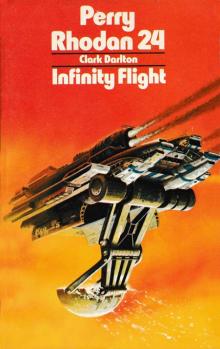 Infinity Flight
Infinity Flight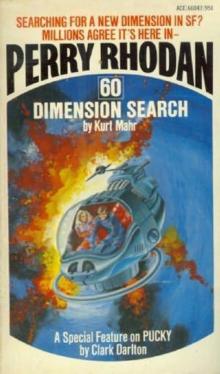 Dimension Search
Dimension Search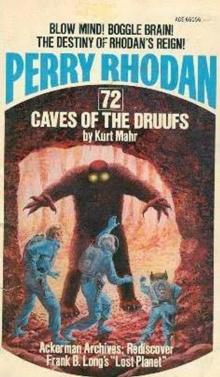 Caves of the Druufs
Caves of the Druufs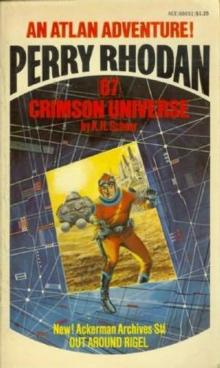 Crimson Universe
Crimson Universe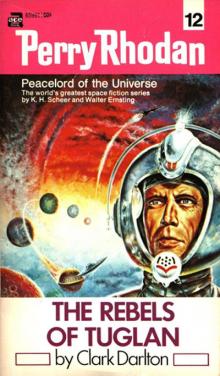 The Rebels of Tuglan
The Rebels of Tuglan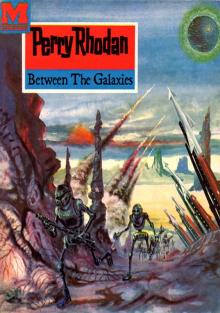 Between The Galaxies
Between The Galaxies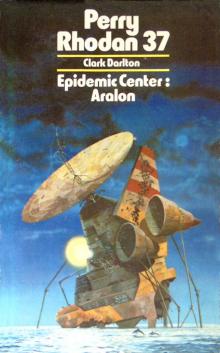 Epidemic Center Aralon
Epidemic Center Aralon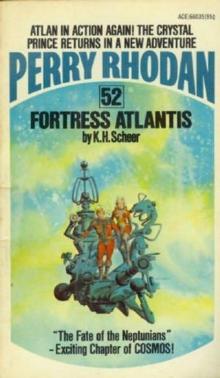 Fortress Atlantis
Fortress Atlantis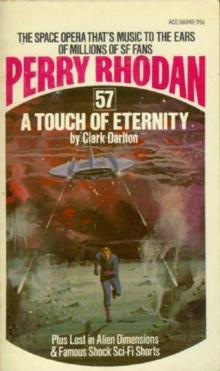 A Touch of Eternity
A Touch of Eternity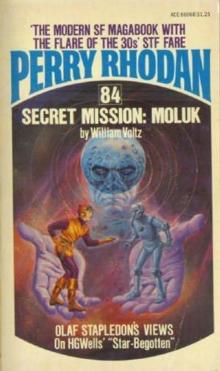 Secret Mission Moluk
Secret Mission Moluk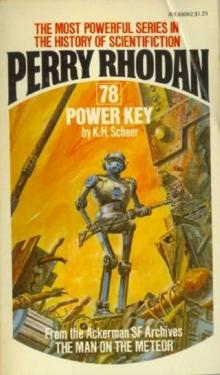 Power Key
Power Key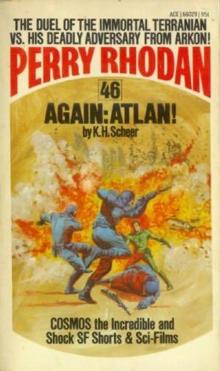 Again Atlan
Again Atlan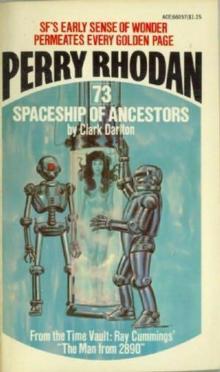 Spaceship of Ancestors
Spaceship of Ancestors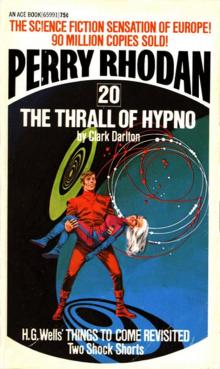 The Thrall of Hypno
The Thrall of Hypno